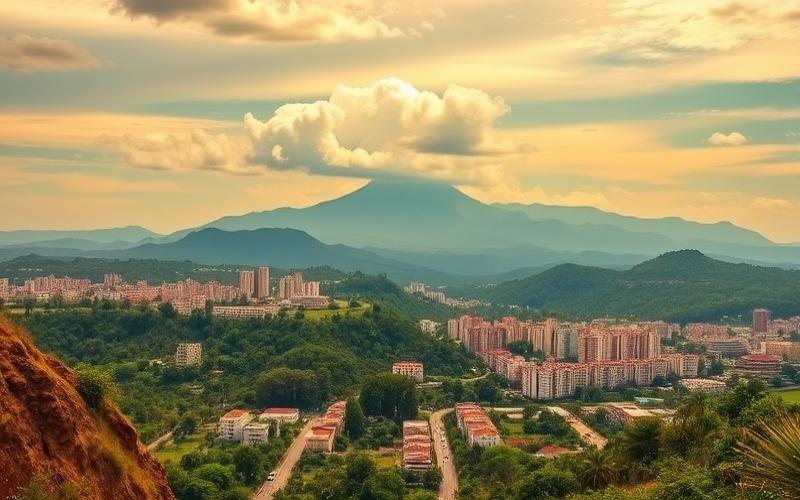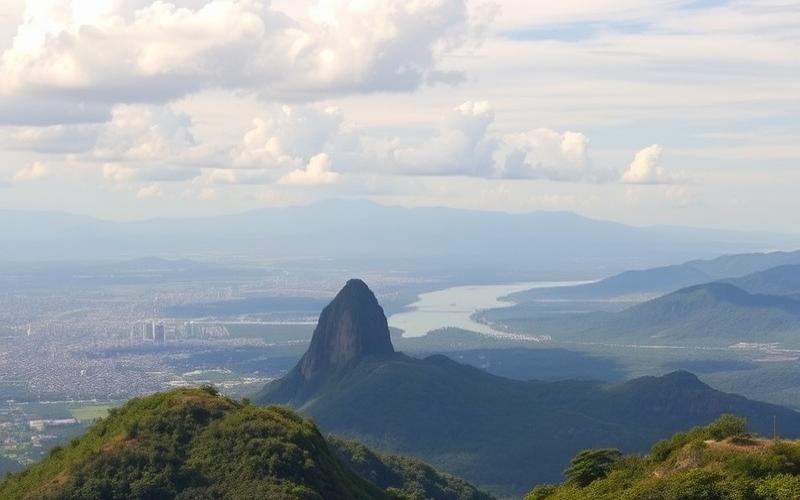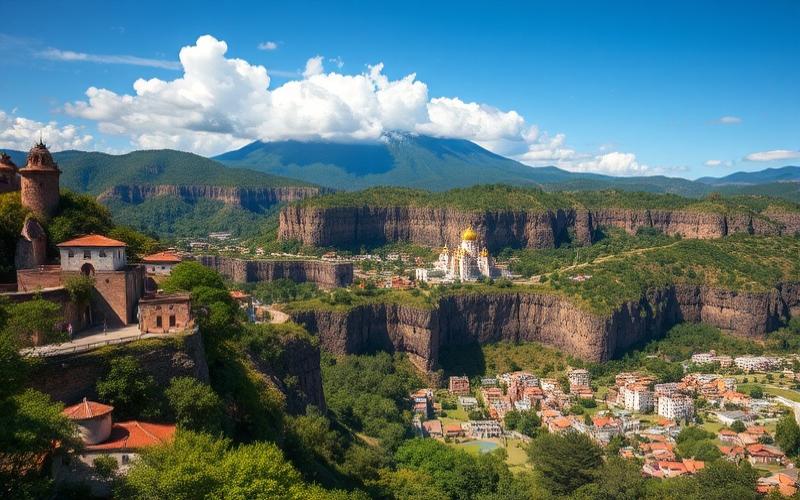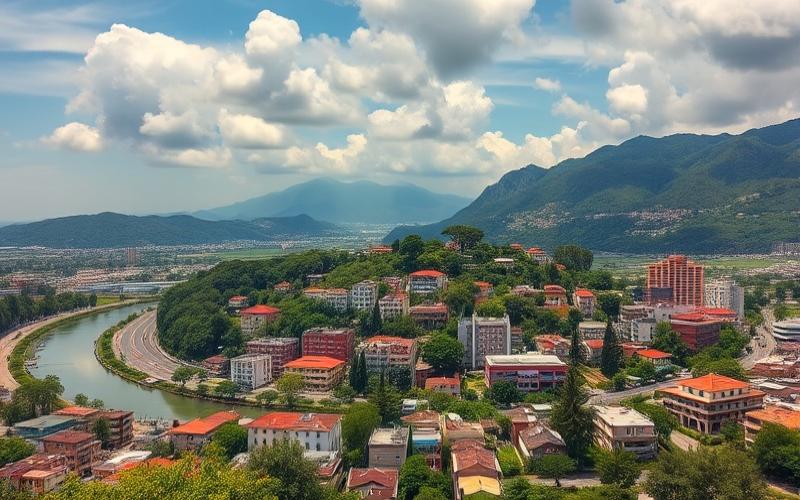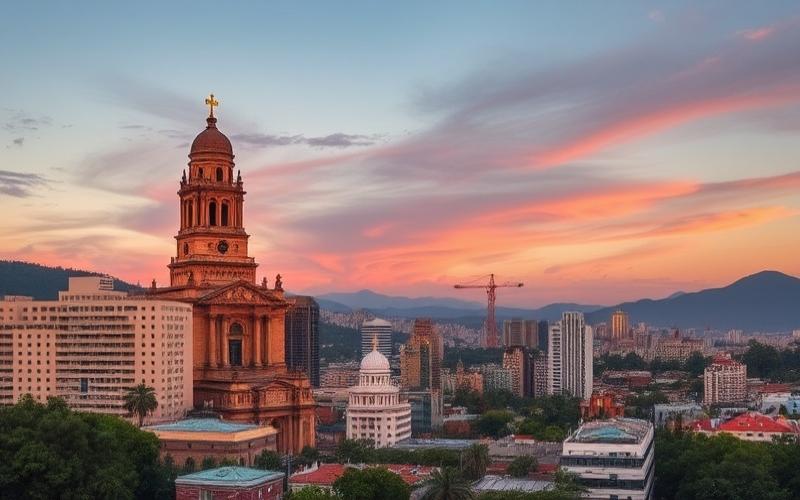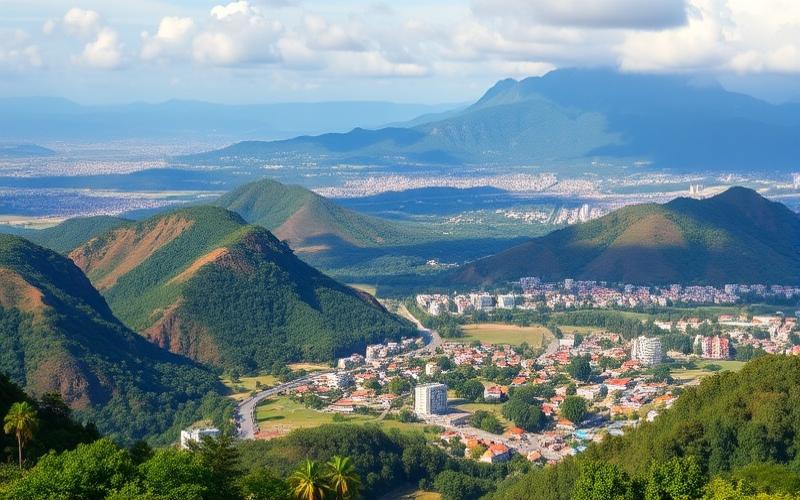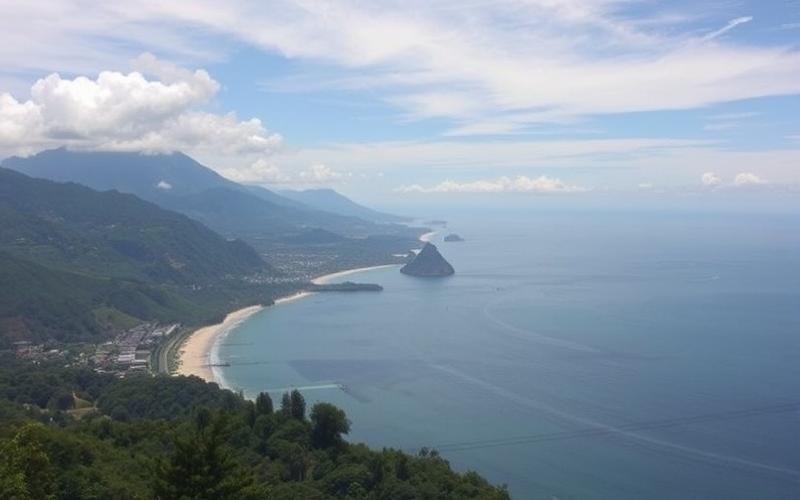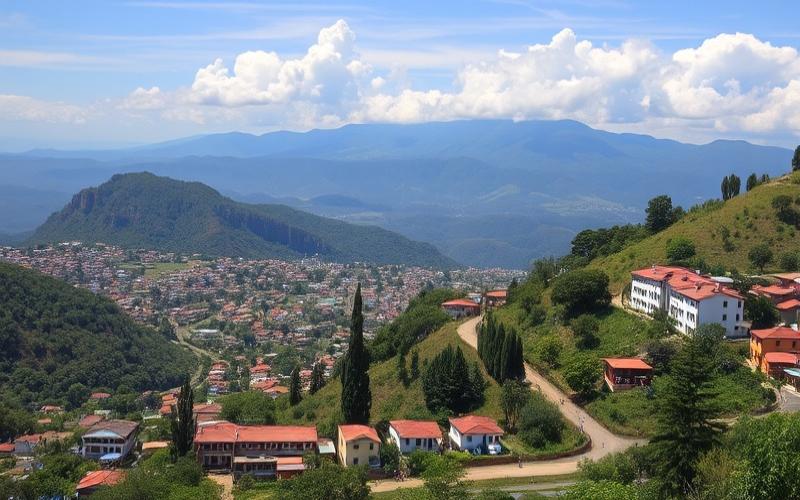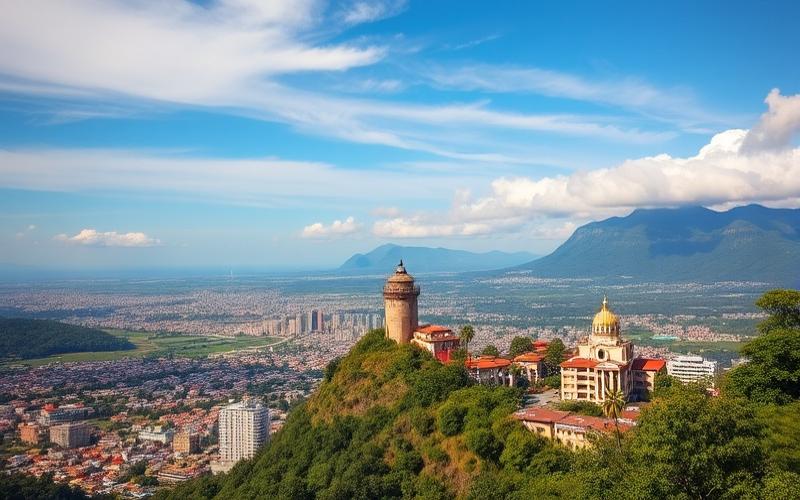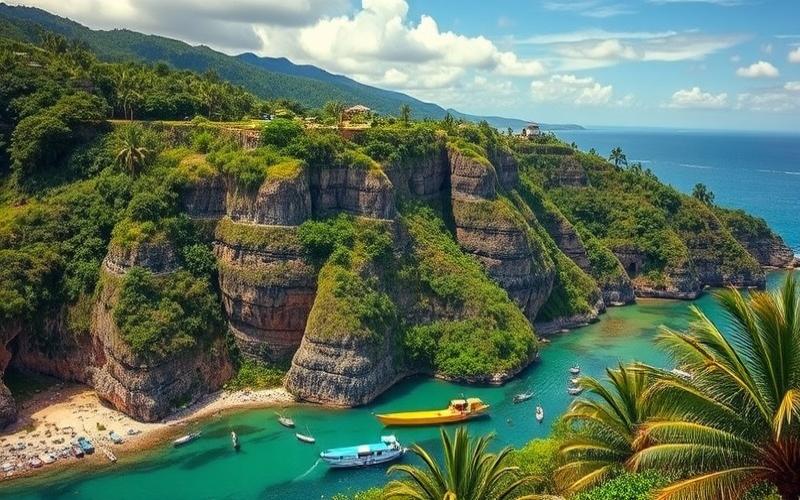
 Published on and written by Cyril Jarnias
Published on and written by Cyril Jarnias
Investing in real estate abroad can be both an exciting adventure and a smart financial strategy for expatriates, and El Salvador, with its booming real estate market, presents an attractive opportunity.
Renowned for its idyllic beaches and tropical climate, this Central American country appeals with its profitability potential and relatively low acquisition costs compared to other markets.
As the Salvadoran government implements economic reforms favorable to foreign investors, now is the time to discover the unique advantages and specific considerations before taking the leap and turning the ambition of a profitable investment into tangible reality.
Understanding the Real Estate Market in El Salvador
Overview of the Salvadoran Real Estate Market
The Salvadoran real estate market is experiencing sustained growth, with significant price increases and renewed interest from foreign investors, particularly in the capital San Salvador, coastal areas like “Bitcoin Beach,” La Unión, as well as emerging towns like Berlin and Alegria.
| Area | Average Purchase Price (€/m²) | Rental Price (€/m²/month) |
|---|---|---|
| San Salvador (downtown) | 2,331.72 | — |
| Barranquet-El Salvador | 1,585 | 11.47 |
| Observed Range SS | 1,987 to 2,897 | — |
Prices have increased by approximately 17 to 25% over one year in certain areas, reflecting strong demand and a dynamic market.
Types of Properties Available
- Single-family homes (in residential or beachfront neighborhoods)
- Apartments, particularly in downtown areas or secure residences
- Building plots, mainly in urban outskirts or along the coast
- Commercial spaces and warehouses (booming sector)
Economic and Political Factors Influencing the Market
- Enhanced Security: Marked decrease in crime due to recent security policies, making the country more attractive for investment.
- Political Stability: The current government focuses on attractiveness for investors and economic growth.
- Recent Tax Reforms:
- Elimination of the 30% tax on foreign capital invested since March 2024
- 3% transfer tax for purchases exceeding $28,000
- No annual property tax
- 10% capital gains tax (after 12 months of ownership)
- Incentives for Foreigners:
- Partial tax exemptions for certain investments
- Possibility for foreigners to acquire properties with full ownership
- Attractive taxation for long-term holdings
Outlook and Developing Areas
- Major infrastructure projects: port renovations ($1.6 billion Turkish investment), development of road and logistics infrastructure, increased industrial capacity
- Growing demand for industrial spaces, warehouses, and offices, particularly in San Salvador and La Unión
- Expansion of tourist and beach areas, especially along the Pacific coast
Practical Tips for Property Purchase in El Salvador
- Plan a thorough verification of property titles (due diligence) to avoid any land disputes.
- Use of a local notary mandatory for transaction authentication.
- Opening a local bank account recommended to facilitate payments.
- Learn about administrative procedures, often slower and more bureaucratic than in Europe.
- Use a reputable real estate agency or lawyer specialized in property law to assist with the transaction.
- Be aware of cultural differences: negotiation is an integral part of the process, and assistance from a local intermediary is often essential.
- Useful resources: chambers of commerce, international real estate agencies present in San Salvador, local consultants specialized in assisting expatriates and investors.
Good to Know:
The real estate market in El Salvador is seeing growing interest in beachfront properties and in San Salvador, with land costing approximately $50-100 USD per m²; note that political stability and attractive tax incentives encourage foreign investment, although the purchase process may involve complex bureaucracy requiring assistance from local experts.
El Salvador now combines strong market dynamics, increasing stability, and attractive opportunities, particularly in developing urban and coastal areas, subject to appropriate professional guidance.
Administrative and Legal Procedures for Expatriates
Administrative Procedures for Expatriates Wishing to Invest in Salvadoran Real Estate
Obtaining a Visa or Residence Permit
- For real estate investment, it is not mandatory to have residency or a specific visa to purchase property, but those wishing to live in El Salvador must apply for a residence visa (average processing time: 2 to 4 months, administrative cost: $300 to $800 USD depending on type).
- To obtain residency, there are several options, including establishing a local company and obtaining a work permit through this company.
- Documents often need to be apostilled and translated.
Property Purchase and Registration Procedures
- Foreigners can purchase real estate in El Salvador with a valid passport and a NIT card (Salvadoran tax identification number).
- The acquisition must be registered at the National Registry Center (CNR), a mandatory step to secure the official property transfer.
- The process includes:
- Preparation of a purchase offer
- Due diligence (title search, verification of debts and municipal compliance)
- Signing of the deed before a notary
- Tax and municipal clearance
- Title registration at the CNR and municipal office
- Registration timeframe: 22 to 37 days
- Associated fees:
- Attorney/notary fees: typically 1% to 1.5% of the property price or a flat fee of $500 to $1,000 USD
- Transfer tax: 3% on the portion exceeding ~$28,500 USD
- Registration fees: 0.5% to 1%
Access to Local Legal Services
- It is highly recommended to engage a local specialized attorney to:
- Verify ownership and absence of disputes
- Draft and authenticate contracts
- Ensure tax and municipal compliance
- Protect the buyer’s interests in all procedures
- Attorneys conduct due diligence and facilitate registration with the CNR.
Tax and Legal Framework for Foreign Investors
| Topic | Details |
|---|---|
| Real Estate Taxation | 3% transfer tax on the portion exceeding $28,571.43 USD |
| Income Taxation | Territorial system: only Salvadoran-source income is taxed |
| Other Taxes | Variable local property taxes depending on the municipality |
| Restrictions | No purchase restrictions for foreigners, except for lands near international borders or certain coastal areas without prior authorization |
Tips and Points of Caution for Expatriates
- Always conduct thorough due diligence: verify municipal compliance, mortgage status, and legal history of the property.
- Registration at the CNR is essential to guarantee the legal security of the transaction.
- Foreigners’ rights are generally equivalent to those of nationals, but purchasing land in border areas (within 3 km limit) and certain coastal areas requires specific authorizations.
- Physical presence in El Salvador may be required for residency renewal (minimum 8 months/year, no absence exceeding 3 consecutive months).
- It is recommended to rely on local real estate agencies and integrate into expatriate networks to facilitate procedures and avoid pitfalls.
Summary of Key Steps
- Obtain a valid passport and Salvadoran NIT card
- Search for a property and hire an attorney for due diligence
- Prepare and sign the purchase offer
- Ensure tax and municipal clearance
- Sign the deed at a notary
- Register the property at the CNR
- Pay associated fees and taxes
- Consider applying for residency if relocating to El Salvador
Good to Know:
To invest in real estate in El Salvador, expatriates must obtain a temporary residence visa and register properties with the CNR, while respecting the rule that limits coastal property ownership to 100 meters from the high tide line; it is recommended to consult a local attorney to navigate the country’s specific tax and legal laws.
International Financing and Taxation for Investing in El Salvador
Main Sources of International Financing for Expatriates
- International Mortgages: Several specialized banks and brokers offer real estate loans to expatriates wishing to invest abroad, including in El Salvador. Conditions vary by institution, but it is common to need to justify a down payment, respect a maximum debt ratio (generally 33%), and have a stable contract. The financing amount can reach 80 to 100% of the property value, depending on the profile and type of project (primary residence, secondary home, rental investment). Interest rates for expatriates are generally comparable to those for residents, but personalized analysis is necessary.
- Venture Capital Funds: Institutional or private investors can access venture capital funds, particularly for innovative real estate projects or those related to technology (e.g., tokenized real estate, blockchain-integrated projects).
- Private Partnerships: Co-investment with local or international partners remains a common option, allowing risk sharing and access to complementary financing.
- Personal Fund Transfers: Money transfers from abroad represent a major part of El Salvador’s GDP and constitute a funding source for many investors from the diaspora.
Tax Incentives Offered by the Salvadoran Government
- Tax Exemptions and Reductions: El Salvador applies a territorial tax system. Foreign-source income (outside El Salvador) is not taxed locally, which may interest expatriates holding income outside the country.
- Citizenship by Investment Program: El Salvador offers a program (“freedom passport”) allowing quick citizenship acquisition in exchange for a substantial investment (donation to the Treasury or future real estate investment), without physical residency requirement. This program includes benefits like family inclusion ease and fast processing.
- Permanent Resident Regime: Obtaining residency can open the door to tax and administrative benefits for foreign investors. The country also plans to introduce a real estate investment option for permanent residency.
Local Tax Legislation Applicable to Rental Income and Capital Gains
| Income Type | Applicable Tax Regime |
|---|---|
| Rental Income (local source) | Taxed in El Salvador, according to the progressive income tax scale. |
| Foreign-source Income | Not taxed (territorial system). |
| Real Estate Capital Gains | Taxed in El Salvador, modalities based on holding period and gain amount. |
International Tax Agreements
El Salvador has concluded double taxation avoidance agreements with certain countries, preventing the same income from being taxed in two jurisdictions.
It is essential to verify the agreements in force between El Salvador and the investor’s country of tax residence to optimize taxation of rental income and capital gains.
Practical Tips to Optimize Taxation When Investing in Salvadoran Real Estate
- Compare financing offers from specialized brokers for expatriates to get the best terms (rates, insurance, fees).
- Ensure being assisted by an experienced local real estate attorney to secure the transaction and tax compliance.
- Take advantage of the territorial tax system by structuring income to limit local taxation to only income generated in El Salvador.
- Examine the opportunity to acquire permanent residency or citizenship, particularly through investment programs, to benefit from certain tax or administrative advantages.
- Verify the existence of double taxation avoidance agreements with your country of residence to avoid double taxation on rental income or capital gains.
- Consider capital gains taxation modalities (based on holding period) to optimize taxation upon resale.
- Anticipate ancillary costs (notary, guarantee, local taxes) in the investment return calculation.
Key Takeaway: El Salvador offers an attractive framework for foreign investors through territorial taxation, specific programs for expatriates, and openness to international financing, provided legal and tax structuring is optimized.
Good to Know:
Expatriates can leverage international mortgages and venture capital funds to invest in El Salvador, where tax incentives such as reductions on rental income taxes and exemptions for permanent residents are available; it is advisable to consult international tax agreements to optimize taxation on real estate capital gains.
Investment Strategies to Optimize Your Wealth
Real Estate Investment Strategies Specific to El Salvador for Expatriates
The Salvadoran real estate market offers varied opportunities for expatriates seeking to optimize their wealth. Several strategies are particularly suitable:
- Purchase of Vacation Homes: Beachfront villas in El Zonte, La Libertad, or Bitcoin Beach are sought after by expatriates and tourists, offering appreciation prospects and seasonal rental opportunities.
- Residential Rental Investment: Urban apartments in San Salvador or suburban homes in secure subdivisions provide attractive rental yields, particularly in neighborhoods favored by the rising middle class or digital nomads.
- Commercial Real Estate: The local economy is modernizing, leading to growing demand for offices, warehouses, and shopping centers, especially in San Salvador and Santa Ana.
- Land and Development Projects: Coastal or rural land is sought for hotel, ecotourism, or agricultural projects.
| Property Type | Price Range | Main Advantages |
|---|---|---|
| Urban Apartment | $60,000 – $200,000 | Strong rental demand, stable appreciation |
| Coastal House | $80,000 – $400,000 | Tourist and seasonal potential |
| Colonial House | $50,000 – $100,000 (Santa Ana) | Heritage, tourist attractiveness |
| Commercial Unit | $1,000 – $2,000/m² (downtown) | Economic growth, diversification |
| Urban Land | $15,000 – $35,000 | Development, potential capital gains |
Tax Benefits and Incentives for Foreign Investors
- Foreigners benefit from the same rights as locals for real estate acquisition (except minor restrictions on very large rural plots or border areas).
- No residency or citizenship requirement to invest.
- El Salvador plans to introduce real estate investment options for residency, which could facilitate long-term wealth management.
- Real estate taxation remains moderate, with relatively low transaction fees and limited capital gains taxation if the investment is held for a long period.
Evaluation and Management of Salvadoran Market Risks
The market remains developing, with sometimes moderate liquidity. Price variations are marked between tourist areas (rapid growth) and less dynamic regions. Main risks include political volatility, evolving security context, and fluctuations in tourist demand.
Risk Reduction Strategies
- Diversification: Spread investments between residential, commercial, and tourist real estate to limit exposure to a single segment.
- Long-term Horizon: Prefer a holding period of 3 to 5 years minimum to smooth market cycles and maximize potential capital gains.
- Rigorous Legal Verification: Always conduct thorough due diligence (property titles, absence of mortgages, zoning compliance).
Importance of Local Support
- Collaborate with experienced real estate agents to identify promising neighborhoods and negotiate effectively.
- Use specialized attorneys to secure transactions, verify titles, and ensure compliance with local regulations.
- Consult specialists on regional trends (prices, yields, security).
Monitoring and Adjusting Investments
- Regularly monitor property valuation and rental dynamics.
- Adapt strategy according to market evolution: arbitrate between seasonal and long-term rental, or consider resale if demand surges in certain areas.
- Stay informed about economic reforms, infrastructure projects, and tax incentives that could impact profitability.
Practical Tips for Expatriate Investors
- Prefer neighborhoods and property types suited to expatriate and tourist clientele.
- Learn about local trends through reliable sources and experts based locally.
- Anticipate market developments by remaining flexible and ready to adjust your real estate portfolio.
Key Takeaway: The success of a real estate investment in El Salvador relies on diversification, prudent risk management, competent local support, and active monitoring of market evolution.
Good to Know:
The Salvadoran real estate market offers opportunities in vacation homes and rental buildings, with tax incentives for foreign investors; it is advisable to diversify investments and collaborate with local experts to mitigate risks and optimize long-term returns.
Disclaimer: The information provided on this website is for informational purposes only and does not constitute financial, legal, or professional advice. We encourage you to consult qualified experts before making any investment, real estate, or expatriation decisions. Although we strive to maintain up-to-date and accurate information, we do not guarantee the completeness, accuracy, or timeliness of the proposed content. As investment and expatriation involve risks, we disclaim any liability for potential losses or damages arising from the use of this site. Your use of this site confirms your acceptance of these terms and your understanding of the associated risks.


